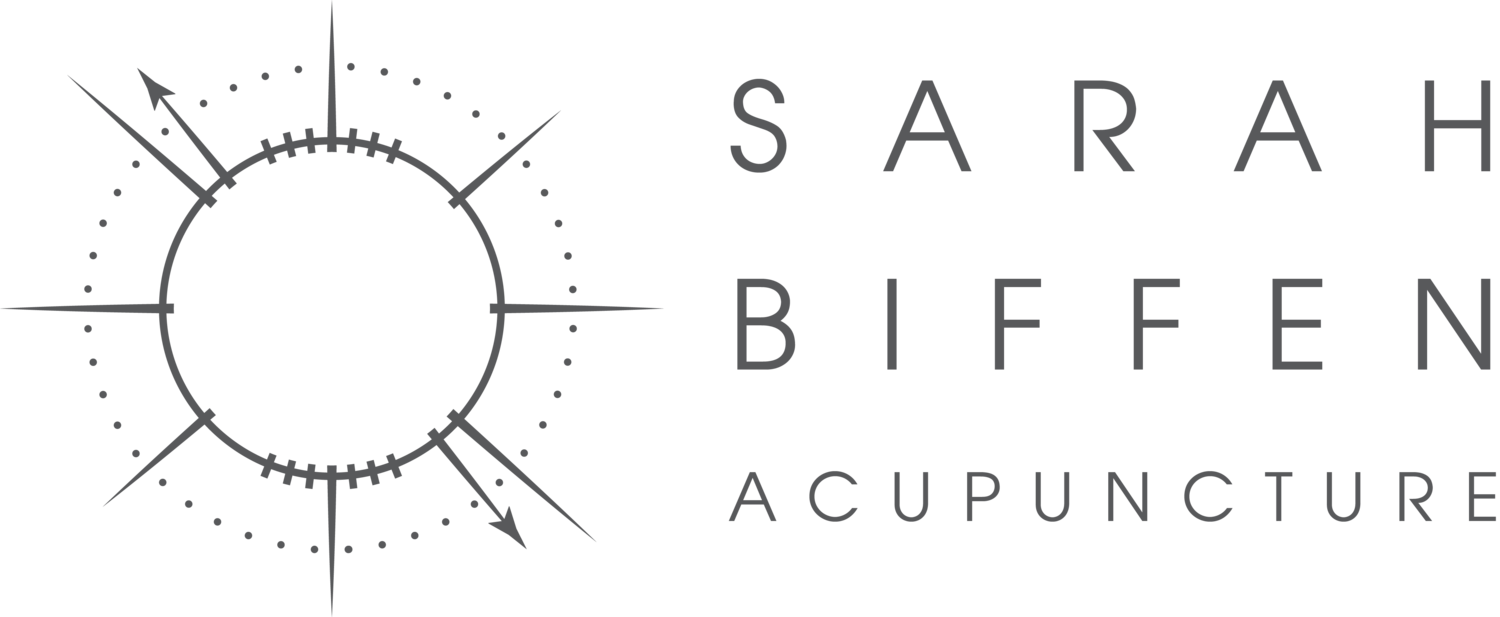Understanding the Menstrual Cycle Through Chinese Medicine: Best Practices for Each Phase
In Chinese Medicine (TCM), the menstrual cycle is oftentimes seen as a reflection of a woman's overall health and is intricately connected to the balance of Qi (energy), Blood, Yin, and Yang within the body.
By understanding these concepts, we can support menstrual health with acupuncture, herbal medicine, and lifestyle best practices. Here we'll explore the four phases of the menstrual cycle according to Chinese Medicine and share lifestyle best practices to optimize health during each phase. Whether you're a busy New Yorker on the go like us, or wherever you’re located, these insights can help you harmonize your cycle and enhance your well-being.
Keeping in mind that every body is unique, below you’ll find the broad view of the menstrual cycle and how best to support each phase.
1. Menstrual Phase (~Days 1-5): Letting Go
The menstrual phase begins with the onset of bleeding and is associated with the release of Blood and the shedding of the uterine lining. In CM, this is a time of letting go, both physically and emotionally.
Best Practices:
Rest & Nourishment: Prioritize rest and avoid overexertion. Consuming warm, nourishing foods such as soups, stews, and herbal teas can support Blood and Qi replenishment.
Acupuncture & Herbal Medicine: Acupuncture can help regulate the menstrual flow and alleviate uncomfortable symptoms like cramps, bloating and nausea. Herbs like Dang Gui (Angelica) and Chuan Xiong (Ligusticum) are often recommended to invigorate Blood and alleviate discomfort. If and when using herbal medicine, be sure to consult a board certified herbalist like our practitioners.
2. Follicular Phase (~Days 6-14): Building Yin
The follicular phase follows menstruation and is marked by the growth of follicles in the ovaries. In TCM, this phase is associated with building Yin, which nourishes the body and prepares it for ovulation.
Best Practices:
Hydration & Nutrition: Focus on hydrating and consuming Yin-nourishing foods, such as tofu, eggs, seaweed and cooked leafy greens. Avoid overly spicy or drying foods.
Mindfulness & Relaxation: Engage in gentle exercises like yoga, pilates or tai chi to cultivate a calm mind and body. Meditation and deep breathing can further enhance Yin energy.
3. Ovulation Phase (~Days 15-17): Rising Yang
Ovulation marks the peak of Yang energy in the cycle, a time of warmth, activity, and transformation. Many folks describe this as their “good week.” In TCM, this is when the body's Qi and Blood are at their most abundant.
Best Practices:
Active Movement: Embrace more vigorous physical activities, such as brisk walking, dancing, or cardio workouts, to support the movement of Qi and Blood.
Acupuncture for Balance: Acupuncture during this phase can help ensure the smooth flow and tonification of Qi and Blood, which can enhance fertility and overall vitality.
4. Luteal Phase (~Days 18-28): Supporting Yang
The luteal phase is the post-ovulatory period, characterized by the body's preparation for potential implantation. In TCM, this phase emphasizes supporting Yang while preventing stagnation.
Best Practices:
Warmth & Moderation: Keep warm and avoid cold foods and drinks. Enjoy warm, easily digestible meals and herbal infusions like ginger-turmeric tea.
Stress Management: Practice stress-reducing techniques such as acupuncture, herbal supplementation, or gentle exercise to prevent Qi stagnation, which can lead to symptoms like irritability or bloating.
Embracing the Wisdom of Chinese Medicine
Understanding and supporting the menstrual cycle through the lens of Chinese Medicine allows for a holistic and proactive approach to your menstrual health. By aligning with the natural rhythms of our bodies and incorporating acupuncture and herbal medicine, you can enhance your well-being throughout your cycle.
If you're seeking personalized care, visit our skilled practitioners at Sarah Biffen Acupuncture in North Brooklyn, or NoHo. We specialize in Acupuncture and Chinese Medicine for women’s health and are here to support you every step of the way.
